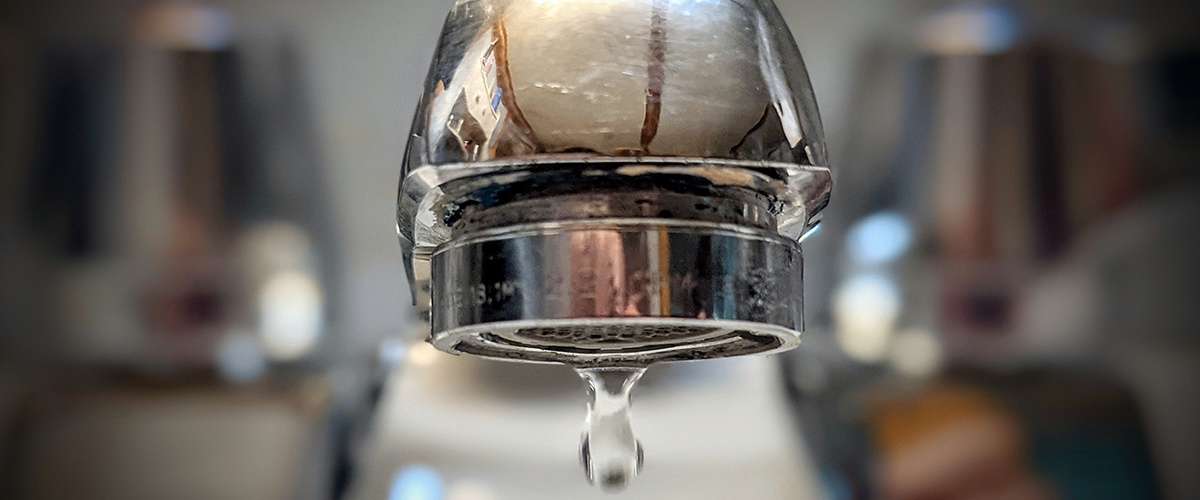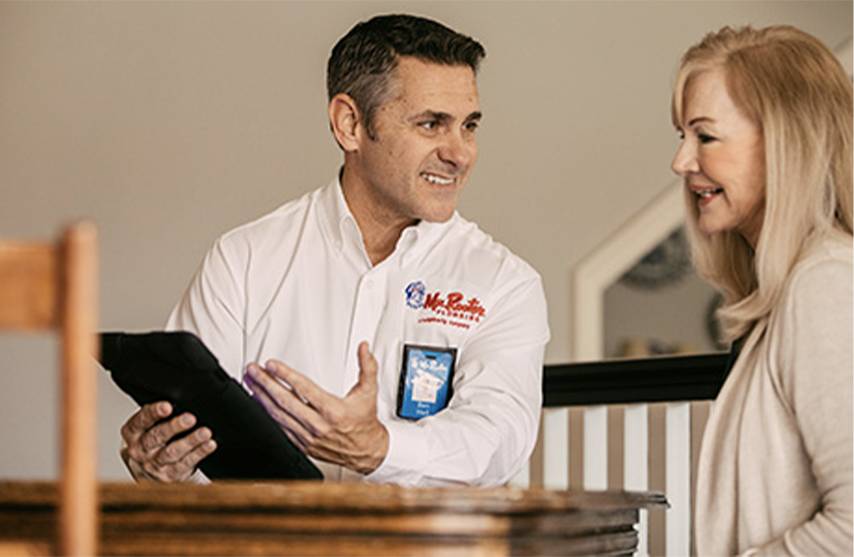
Dripping faucets are one of the common plumbing problems in older homes. There’s a misconception out there that a dripping faucet is a minor issue that doesn’t warrant prompt action. However, even a small drip can drive up your water bills and cause mold growth. Today, we will discuss some of the common causes of faucet leaks and how to fix these fixtures. It’s important to fix leaky faucets in a timely manner to save money and frustration.
Here at Mr. Rooter Plumbing, we take great pride in offering professional faucet leak repair services in Youngstown, OH . Our plumbers understand the common causes of faucet leaks and the possible fixes.
Washers inside faucets experience wear and tear over time due to constant friction against valve seats. As they degrade, they no longer form a proper seal, causing leaks. This is one of the most common reasons for dripping faucets, especially in older plumbing fixtures that have been heavily used.
To fix worn-out washers, turn off the water supply and disassemble the faucet handle. Replace the old washer with a new one that matches the size and shape. Proper installation ensures a tight seal. If unsure, a leak detection expert can assist with the repair quickly and efficiently.
Your faucets contain valve components that form a watertight seal to ensure the fixtures do not leak. If these components become corroded, the seal will be compromised and allow water to seep through.
Fixing corroded valves involves removing the faucet handle and valve assembly to inspect for damage. Clean minor corrosion using vinegar or replace heavily corroded parts with new components. If corrosion affects the entire valve system, professional help might be required for a full faucet replacement.
Loose fittings, nuts, or bolts in the faucet assembly can lead to leaks. Over time, vibrations, water pressure, and regular use can cause these connections to loosen. This issue is common in both kitchen and bathroom faucets and should be addressed in a timely manner.
To fix loose connections, carefully tighten nuts and bolts with a wrench. Check all fittings for stability, including supply lines and base connections. If tightening doesn’t solve the issue, consider replacing worn-out seals or calling a plumber specializing in faucet replacement to prevent further leaks.
High water pressure is not just bad for your water pipes, but it can also strain your faucets and lead to leaks. If your faucets are spitting out when you turn them on, that’s a sign of excessive water pressure.
The fix for high water pressure is simple—install a pressure regulator to keep levels in check. A plumber can test pressure and make necessary adjustments. If damage has already occurred, they will recommend replacing affected components and securing the plumbing system against future pressure surges.

Cartridges control water flow in modern faucets, but over time, they can wear out. Damaged seals or mineral buildup can affect performance, especially in single-handle faucets. These leaks are often signaled by water dripping near the handle or spout.
A faulty cartridge is relatively easy to fix—turn off the water supply and remove the handle to access the cartridge. Replace the damaged part with a compatible model. Clean surrounding areas to remove buildup before reassembly. If leaks persist, professional inspection may be required for further leak repair.
Do you need help with faucet repair or replacement? Contact the experts at Mr. Rooter Plumbing for reliable and budget-friendly services.